GEORGE WASHINGTON

Name: George Washington
Born: February 22, 1732
Died: December 14, 1779
Position: 1st US President
Career Highlights:
One of the Founding Fathers of the United States
Commander-in-Chief of the Continental Army during the American Revolutionary War
Presidential term: April 30, 1789 March 4, 1797
Interesting Fact: Lost his teeth due to illness. While he never had wooden dentures, the ones he did have were made of hippopotamus ivory, held together with gold springs.

This book is a work of fiction. Any references to historical events, real people, or real places are used fictitiously. Other names, characters, places, and events are products of the authors imagination, and any resemblance to actual events or places or persons, living or dead, is entirely coincidental.

An imprint of Simon & Schuster Childrens Publishing Division
1230 Avenue of the Americas, New York, NY 10020
www.SimonandSchuster.com
This Aladdin edition June 2014
Copyright 1942, 1953, 1959 by the Bobbs Merrill Company, Inc.
Cover illustration copyright 2014 by Chris Whetzel
All rights reserved, including the right of reproduction in whole or in part in any form.
ALADDIN is a trademark of Simon & Schuster, Inc., and related logo is a registered trademark of Simon & Schuster, Inc.
Designed by Mike Rosamilia
Jacket designed by Jeanine Henderson Laura Lyn DiSiena
Jacket illustration copyright 2014 by Chris Whetzel
The text of this book was set in Adobe Caslon Pro.
Library of Congress Catalog Number 2014933321
ISBN 978-1-4814-0703-8 (pbk)
ISBN 978-1-4814-0704-5 (hc)
ISBN 978-1-4814-0705-2 (eBook)
Dedicated to the memory of a fine patriot, my mother, Polly Ann Van Houten Stevenson

CONTENTS


ILLUSTRATIONS

Numerous smaller illustrations
ALONG THE RAPPAHANNOCK
MOVE BACK! Move back! shouted the sheriff. Theyre about ready to roll!
The crowd on the shore moved back, but not enough to suit the sheriff. Do you want to be killed? he shouted. Move back!
The sheriff walked toward the crowd to push some of the people back. He pointed toward the hogsheads, or barrels, of tobacco ready to come rolling down the hill.
Move back! the sheriff shouted to the people again. Move back!
This time they obeyed. They knew the danger, for they came to Augustine Washingtons plantation every year on Loading Day. Many came from the little town of Fredericksburg, across the Rappahannock River. Others came from plantations round about.
It was a sight to seethose tobacco hogsheads rolling down the steep bank. It was exciting, too. Sometimes a barrel would go wild. It would get loose from its ropes and go crashing down like a great monster. Faster and faster! Wilder and wilder! And then with a great splash it would plunge into the deep river.
Field hands up on the bank had placed strong ropes around a hogshead. Now they were holding these ropesready to roll when their master gave the signal. But Augustine Washington didnt give it.
He wasnt satisfied. He examined the ropes again. Any hogshead that went wild was a bad loss for him. The barrels were packed with his tobacco, raised on his Virginia plantations.
They were to be loaded on the vessel waiting at his wharf and taken to England. The tobacco would be sold there, and the Washington family would live this year on whatever money it brought.
No wonder Mr. Washington examined the ropes carefully. No wonder Mrs. Washington watched closely a little distance away.
A little boy watched with hera slender, handsome boy, tall for his seven years. His hair was a reddish light-brown. His eyes were gray-blue and very keen. He was watching now as closely as his mother.
Father wont let them roll, he said. Whats the matter, Mother?
Hes telling the workers something, George. Hes very careful. Everything has to be exactly right.
Oh! I see what it is! cried George. He told them to put on their leather gloves.
Hes afraid the ropes will cut their hands, said Mrs. Washington.
Look! cried George a moment later. Father is lifting his hand!
Ready! shouted Mr. Washington. Roll!
Move back! shouted the sheriff. Move back! Shes coming!
George almost held his breath until the hogshead was down the bank, across the wharf and aboard the ship. He was as anxious as his parents. And no one was happier than he when the last cask was on the ship.
He hadnt had new boots last winter. Too much tobacco had been lost, both in the field and in the river. But this year everything was just right. There was no bad tobacco, and not a barrel had been lost.
Now I know Ill get new boots, he told his little sister Betty. Mother said I could have brass tips, too.
Im going to have new shoes, said Betty. And Im going to have brass tips if you do.
BOATS PASSING BY
There were boats on the Rappahannock all day long: rowboats, sailboats, sloops, brigs, brigantines, barges. Sometimes there was a sailing vessel from England. There were often trading vessels from Boston and New York.
All these boats passed by Ferry Farm, and the younger Washington children watched them from the bank.
There was George, now seven and one-half years old. There was Betty, one and one-half years younger. And there were the still younger boys, Samuel, John, and Charles.
The older boys, Lawrence and Austin, were away at school in England. They were the sons of Augustine Washington and his first wife. The younger of these two sons had been named for his father but was called Austin.
George had been born on February 22, 1732. At that time the Washingtons were living on their Wakefield Plantation. This plantation was near the Potomac River.
Later, when George was six years old, they had moved to their farm on the Rappahannock River. This plantation had three names: Pine Grove Farm, Cherry Tree Farm, and Ferry Farm. Most persons called it Ferry Farm, because the ferry to Fredericksburg was under its banks, and also because Mr. Washington owned the ferry.
The passengers were mostly planters from distant plantations. They rode horseback to the river. Some left their horses at Ferry Farm until they returned. Others took their horses with them.
So sometimes the ferryman rowed a skiff and sometimes a barge. Sometimes he ferried people, sometimes horses, mules, and cattle. But he was always dressed the samehigh boots, blue trousers, red flannel shirt, and blue cap.


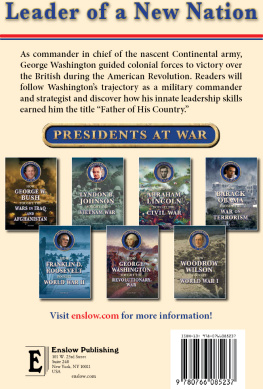
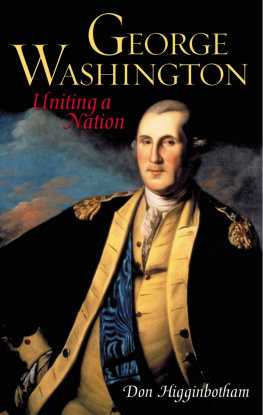
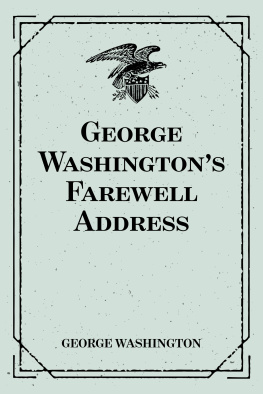

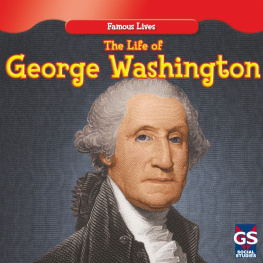
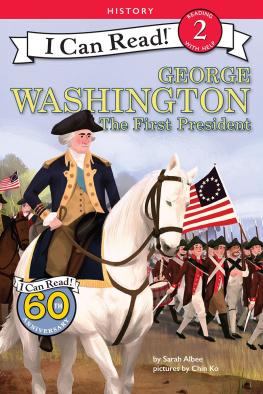
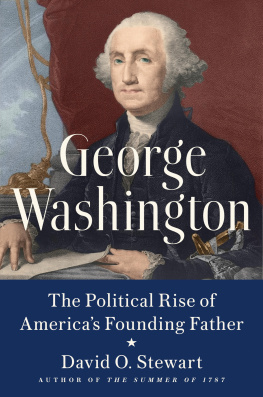
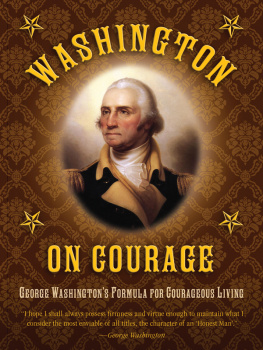
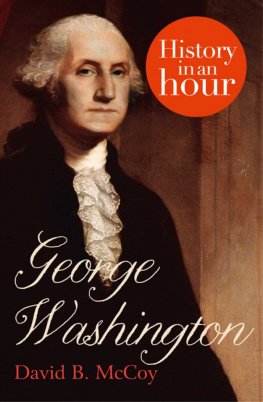



 CONTENTS
CONTENTS 
